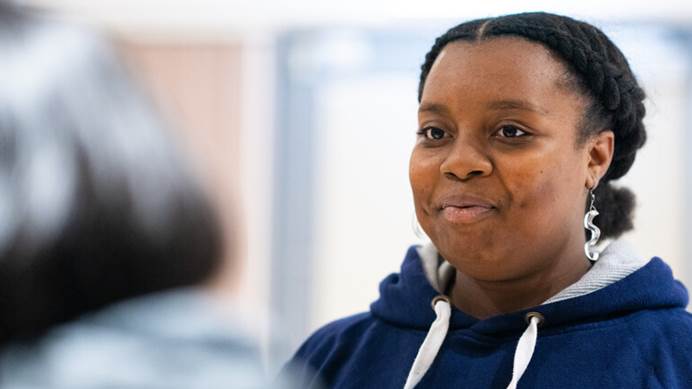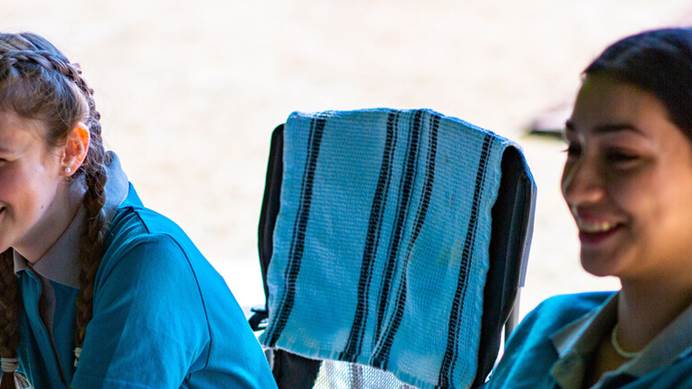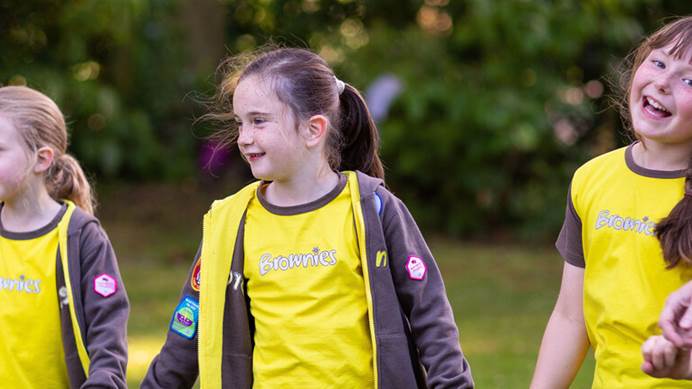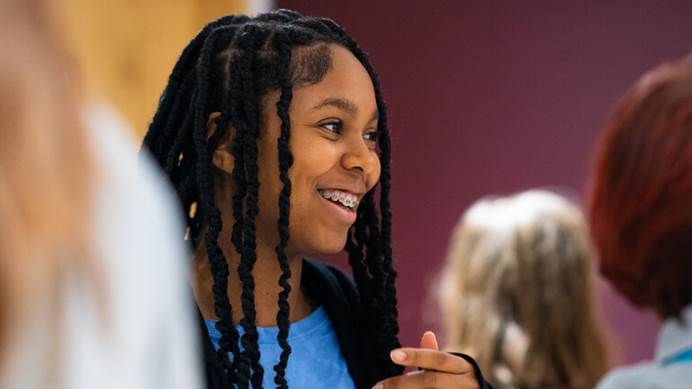Safeguarding policy
Our policy on how we promote the welfare of girls, young women and adults and protect them from harm
Published: 2 October 2024
Version: 5
How to contact the HQ safeguarding team
If you have a safeguarding concern, report it. If it’s an emergency and there’s an immediate risk of harm, you must call the emergency services first, and then report to the HQ safeguarding team.
Get in touch during office hours on +44(0)207 834 6242 ext. 3037 or email [email protected].
For out of hours emergencies, call +44(0)7508 032997 (5-10pm Monday to Friday; 9am-10pm Saturday, Sunday and bank holidays).
If we don’t answer your call straight away or it’s outside our office hours, please send us an email explaining your concern, or call us once our lines are open again. Please don’t text the out-of-hours number as we can’t see these messages.
Find out what's changed and why in the most recent updates to this policy.
Policy aims and purpose
Safeguarding is what we do to promote the welfare of girls, young women and adults, and to protect them from harm. Safeguarding is our first priority and is at the heart of everything we do.
This policy sets out our commitment to safeguarding, our expectations, how we safeguard children and adults, how to report a concern, and how Girlguiding HQ will respond to concerns.
Safeguarding is everyone’s responsibility, whether you're an adult volunteer, adult member or a member of staff employed by the Guide Association.
Our policy must be followed by all Girlguiding’s volunteers, members, and all staff employed by The Guide Association whether permanent, fixed term or contracted. The Guide Association works in close partnership with other Girlguiding employers to respond to safeguarding matters where it includes country and region or local staff.
We follow the same safeguarding principles offline and online. You must read this policy with the procedure that goes with it, as well as the digital safeguarding policy, and its procedure.
If you have a safeguarding concern – offline or online – you must report it within 24 hours (or sooner if it’s an emergency) to the HQ safeguarding team.
The safeguarding team are on hand to help. If you need support with anything to do with safeguarding, or you have a concern, get in touch.
Definitions
- Adult member - anyone over 18 years old for whom a subscription is paid.
- Adult volunteer - anyone aged over 18 who gives their time to Girlguiding without being paid, in a registered volunteer role. This includes volunteers working directly with members and volunteers with no direct contact.
- Girlguiding – the Guide Association and all local units, districts, divisions, counties, countries and regions.
- Member – includes young members and adult members.
- Staff - anyone employed by The Guide Association whether permanent, fixed term or contracted.
- Statutory agencies – includes the police, children’s social care, and designated officers (including Local Authority Designated Officers) and multi-agency safeguarding hubs.
- Young member - anyone who’s a Rainbow, Brownie, Guide or Ranger. Or a volunteer aged under 18 in any role, for example a young leader.
Policy statement
Girlguiding’s commitment to safeguarding
We’re committed to safeguarding all adults and children, offline and online. Everyone has a right to live free from abuse, exploitation, harm and fear, and to be safe and well. By following this policy you’ll help to create a safe space where all our members can have a great guiding experience. It allows anyone to report a concern or make a disclosure.
We recognise that some people are particularly vulnerable. This may be because of some aspect of their identity or circumstance.
Whilst harm can take place offline, online, and sometimes both, we recognise that some types of harm can happen only, or mostly online. You must read the digital safeguarding policy alongside this policy.
You don’t have to be certain about a concern before you get in touch with our HQ safeguarding team, so if in doubt, report it. We recognise and respond to all types of safeguarding concerns, offline and online, including, but not limited to:
- Abuse – this includes physical, emotional, sexual, neglect, domestic, including non-recent, online abuse and child-on-child abuse.
- Exploitation – such as child sexual exploitation and child criminal exploitation.
- Harm – including bullying, grooming, self-harm and harmful traditional-based practices (e.g. female genital mutilation, forced marriage).
- Specialist areas – mental wellbeing or mental capacity and radicalisation.
If you think someone is at risk, you must report it.
You can find out more about different types of harms and abuse from the Ann Craft Trust and the NSPCC.
Expectations
Girlguiding expects all adult volunteers, adult members, and staff to:
- Follow our safeguarding procedure and digital safeguarding policy.
- Report all concerns, allegations and disclosures within 24 hours (or sooner if it’s an emergency) to the HQ safeguarding team and your commissioner. Never assume someone else has reported a concern.
- Inform the HQ safeguarding team about any ongoing or past investigation into you or someone you have a significant relationship with which relates to any child or adult safeguarding allegation, concern or disclosure. The investigation may have been carried out by the police, social services, an employer, or another organisation you volunteer for. A significant relationship includes, but isn’t limited to, family members, partners, and members of the same household. You can contact your commissioner for support.
- Be vigilant, so you recognise when something is worrying.
- Work with the HQ safeguarding team and your commissioner to act when there’s a concern.
- Avoid one-to-one contact with a girl or young member. Never contact a girl or young member under the age of 14 without permission from their parent or carer. This applies even if they contacted you first – unless it’s an emergency.
- Consider inclusion and accessibility when you’re dealing with safeguarding issues. For example, making adjustments to support disabled members and volunteers, or those with additional needs, including making adjustment plans, which should be reviewed regularly.
- Complete and continue to renew the mandatory safer guiding relevant to your role. We’ll send you a reminder when you must renew your training.
How Girlguiding safeguards children and adults
- We take all concerns seriously. Our safeguarding team is on hand to support you with any concerns you might have. If you think someone might be at risk of harm, offline or online, you must report it.
- We have a robust volunteer and staff safeguarding structure in place.
- We recruit volunteers using our recruitment and vetting policy.
- We use our safeguarding procedure to manage allegations against volunteers.
- We use our managing concerns about adult volunteers policy to manage breaches of this policy by volunteers. For staff, we use our staff disciplinary procedure, which is on the staff intranet.
- We always have health and safety measures in place, based on the law and statutory guidance.
- We have safeguarding leads at county, country and region levels who are there to support volunteers involved in handling safeguarding concerns.
- We share concerns and information with statutory agencies when appropriate. For example, where there are significant concerns about someone working with children. Or where we believe that someone is at risk of abuse or harm.
- We ensure safeguarding concerns are shared with parents or carers where appropriate unless doing so could place their child at increased risk.
- We have guidance around joint events, external visitors at unit meetings, and involving parents.
The Board of Trustees of the Guide Association have ultimate responsibility for safeguarding.
Reporting a concern
It’s important you know the signs and indicators of abuse or harm. You must also know how to respond to and report any concerns, allegations or disclosures.
If you have a safeguarding concern you must make a report within 24 hours, or as soon as possible if it’s an emergency.
Our HQ safeguarding team will respond to all concerns and emails within 5 working days. In the event of an emergency or urgent report they will take action promptly. You can contact your commissioner for support.
Our safeguarding team also leads on bullying and harassment concerns. See our anti-bullying and harassment policy for more information.
British Overseas Territories
Members in British Overseas Territories must abide by local legislation when applying this policy, where relevant.



